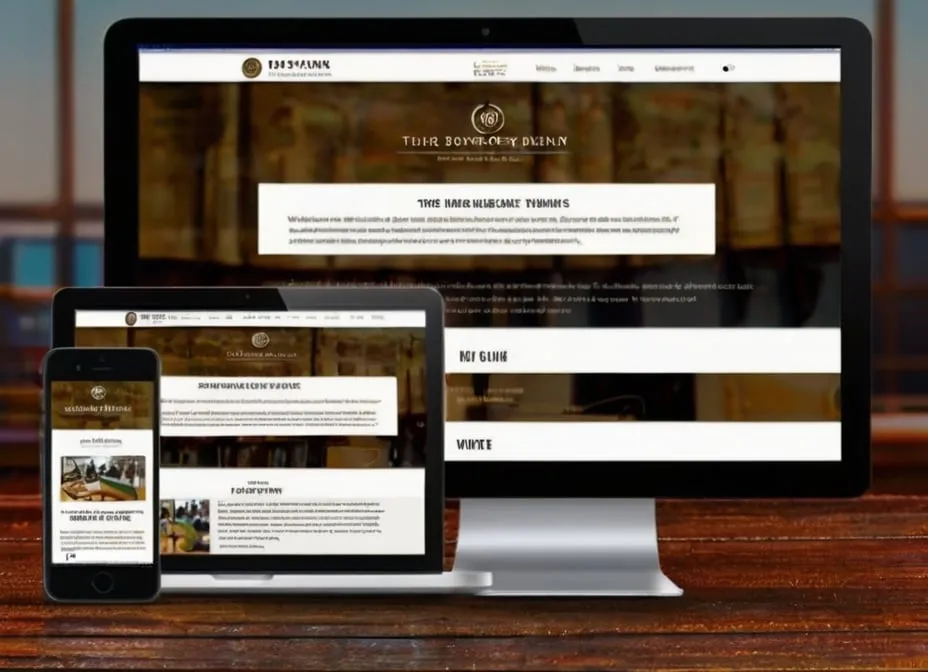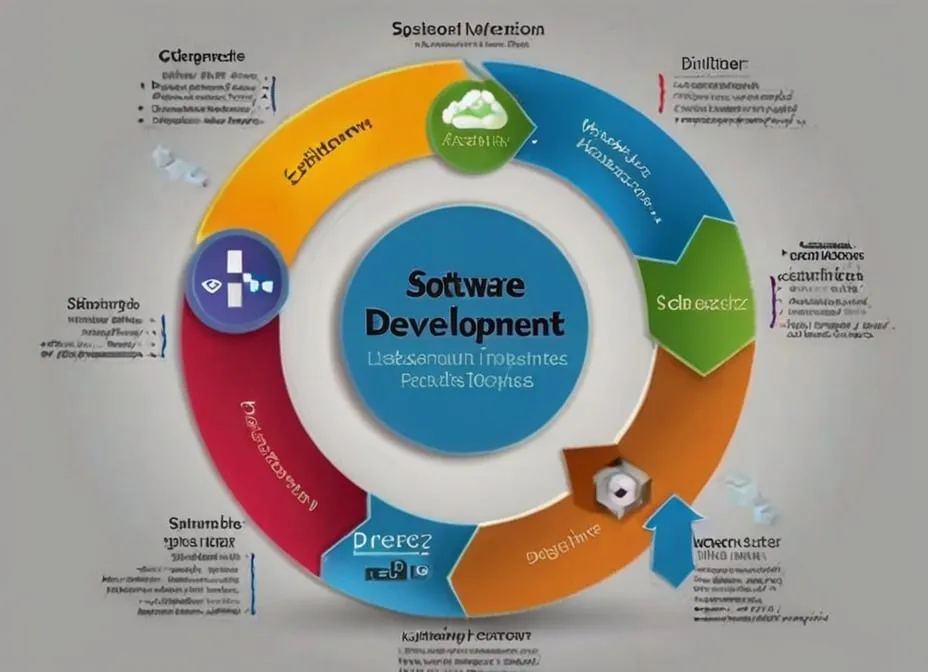Best Tech Jobs For The Future
Conquering the Tech Frontier: A Guide to the Best Jobs for the Future

The technological revolution is upon us, and it's transforming the way we live, work, and interact with the world around us. This ever-evolving landscape creates a dynamic job market, brimming with exciting opportunities for those with the right skills. But with so many emerging tech fields, navigating this complex terrain can feel overwhelming. Fear not, intrepid explorer! This comprehensive guide will equip you with the knowledge and insights to identify the best tech jobs for the future, cultivate the necessary skills, and launch a thriving career in the ever-expanding tech frontier.
Unveiling the Landscape: The Rising Tide of Tech Innovation
The digital revolution is fundamentally altering the way businesses operate and consumers interact with products and services. Artificial intelligence (AI), machine learning (ML), cloud computing, and cybersecurity are just a few of the disruptive technologies driving this change. These advancements are creating a surge in demand for skilled professionals who can design, develop, implement, and maintain these complex systems.
Demystifying the Shift: How Technology is Reshaping the Workforce
As automation and AI continue to infiltrate various industries, repetitive tasks are being replaced by technology. However, this doesn't spell doom and gloom for the workforce. Instead, it's creating a shift towards jobs that require creativity, critical thinking, problem-solving skills, and the ability to adapt to a constantly evolving environment.
A Glimpse into the Future: Emerging Tech Trends Defining Job Roles
Here's a sneak peek at some of the hottest tech trends that will define the future job market:
- The Rise of Artificial Intelligence (AI) and Machine Learning (ML): AI and ML are poised to revolutionize numerous industries, from healthcare and finance to manufacturing and transportation. This will necessitate a surge in demand for AI engineers, ML specialists, and data scientists who can develop, implement, and manage these intelligent systems.
- The Ascendancy of Cybersecurity: As our reliance on technology grows, so do the threats posed by cybercriminals. This necessitates a robust cybersecurity workforce to protect critical infrastructure and sensitive information. Cybersecurity analysts, ethical hackers, and penetration testers will be in high demand.
- The Power of Data: Data is the new oil, and the ability to extract valuable insights from it is crucial for businesses of all sizes. Data scientists, data analysts, and business intelligence specialists will be instrumental in turning raw data into actionable business strategies.
- The Human Touch: User Experience (UX) Design: While technology is advancing at breakneck speed, the human element remains paramount. UX designers will be crucial in creating user-centric interfaces that are intuitive, and engaging, and foster seamless interaction with technology.
The Power of Skills: Essential Abilities for Thriving in the Tech Realm
While specific technical skills will vary depending on the chosen career path, some core competencies are essential for success in the tech industry:
- Problem-Solving Skills: The ability to identify problems, analyze causes, and develop effective solutions is a cornerstone of success in any tech role. Tech professionals encounter challenges daily, from troubleshooting software bugs to devising innovative solutions for complex business needs. A strong problem-solver can dissect an issue, break it down into its core components, and then methodically explore and evaluate potential solutions. This requires not just technical knowledge but also critical thinking, creativity, and the ability to think outside the box.
- Analytical Thinking: Data is the lifeblood of the tech industry, and the ability to analyze it effectively is crucial. Analytical thinkers can dissect complex datasets, identify trends and patterns, and translate raw data into actionable insights. This skill involves proficiency in various data analysis tools, a keen eye for detail, and the ability to present findings clearly and concisely.
- Communication Skills (Written and Verbal): Effective communication is vital, regardless of your specific tech role. You'll need to collaborate with colleagues, explain technical concepts to both technical and non-technical audiences, and document your work. Strong written communication skills ensure your ideas are conveyed clearly and concisely in emails, reports, and documentation. Verbal communication allows you to articulate complex ideas persuasively during meetings, presentations, or troubleshooting sessions.
- Adaptability and Lifelong Learning: The tech industry is a whirlwind of innovation. New technologies and trends emerge constantly, and successful professionals embrace lifelong learning. This means continually seeking out new skills, attending workshops and conferences, and staying abreast of the latest advancements. Be curious, be open to change, and be prepared to continuously expand your knowledge base.
- Teamwork and Collaboration: Tech projects rarely exist in silos. Whether you're developing software, designing user interfaces, or analyzing data, collaboration is key. The ability to work effectively within a team, share ideas constructively, and navigate diverse perspectives is crucial. Additionally, strong interpersonal skills foster a positive work environment and enhance team dynamics.
By cultivating these core skills, you'll equip yourself to not only thrive in your chosen tech career path but also adapt and grow alongside the ever-evolving landscape of the industry. Remember, ongoing learning, a collaborative spirit, and a willingness to tackle challenges are the cornerstones of a successful tech career.
Charting Your Course: Top Tech Careers Poised for Takeoff
Now that we've explored the evolving tech landscape and the vital skills for navigating it, let's delve into some of the most promising tech careers that are set to soar in the years to come.
Architects of the Digital World: Software Engineers and Developers
Software engineers and developers are the masterminds behind the digital world we inhabit. They design, develop, test, and deploy software applications that power everything from our smartphones and tablets to complex enterprise systems. With the ever-increasing reliance on technology, the demand for skilled software engineers shows no signs of abating.
Guardians of the Digital Frontier: Cybersecurity Specialists
As cyber threats continue to evolve, the need for cybersecurity specialists has become paramount. These digital warriors safeguard our data, networks, and systems from malicious attacks. They possess a deep understanding of cyber threats, vulnerabilities, and countermeasures. Cybersecurity analysts, ethical hackers, and penetration testers are just a few of the in-demand specializations within this rapidly growing field.
Data Whisperers: Unveiling Insights with Data Science and Analytics
Data is the lifeblood of modern businesses, and data scientists and analysts are the alchemists who transform raw data into actionable insights. They leverage statistical methods, machine learning, and data visualization techniques to uncover hidden patterns, trends, and correlations within data sets. These insights empower businesses to make informed decisions, optimize operations, and gain a competitive edge.
Building Bridges Between Humans and Machines: User Experience (UX) Designers
Technology is powerful, but it's only valuable if it's user-friendly. UX designers bridge the gap between humans and machines by creating intuitive and engaging user interfaces (UIs) for websites, applications, and software. They possess a blend of creativity, technical understanding, and user psychology to craft experiences that are not only visually appealing but also functional and enjoyable for the user.
These are just a few examples of the many exciting tech careers that beckon those with the right skill set and passion. The tech industry is a dynamic and ever-evolving landscape, offering a plethora of opportunities for those who are eager to learn, adapt, and contribute to shaping the future.
Mastering the Toolkit: Cultivating the Skills for Tech Success
Having identified some of the most promising tech careers, let's equip ourselves with the necessary tools to thrive in this dynamic environment. Here are some core skillsets that will empower you to navigate the tech frontier with confidence:

Building a Strong Foundation: Core Programming Languages and Frameworks
The tech industry thrives on code. While specific languages will vary depending on your chosen field, having a solid grasp of at least one or two programming languages is a foundational requirement. Popular languages like Python, Java, JavaScript, and C++ provide a strong foundation for building software applications, web applications, and scripting functionalities. Additionally, familiarity with frameworks like React, Angular, and Node.js can significantly enhance your development capabilities.
Embracing the Power of Data: Data Analysis and Visualization Skills
Data is king in the tech realm. But raw data is just potential. The ability to extract meaningful insights and translate them into clear, concise visuals is crucial for effective communication and informed decision-making. Learning data analysis tools like SQL and data visualization software like Tableau will empower you to transform data into compelling stories that resonate with both technical and non-technical audiences.
The Art of Communication: Effective Written and Verbal Communication
Tech isn't just about coding and algorithms. It's also about collaboration, problem-solving, and effectively conveying complex ideas. Strong written and verbal communication skills are essential for success in any tech role. The ability to articulate technical concepts clearly and concisely, both verbally in team meetings and presentations and in written documentation, is instrumental for fostering collaboration and ensuring everyone is on the same page.
Adaptability and Lifelong Learning: Embracing the Ever-Evolving Tech Landscape
The tech industry is a whirlwind of innovation. New technologies and trends emerge constantly, making continuous learning a vital skill for long-term success. Cultivate a growth mindset that embraces ongoing learning. Participate in online courses, attend industry conferences, and actively seek out opportunities to expand your skillset and stay abreast of the latest advancements. Remember, the most valuable asset you possess in the tech industry is your ability to learn and adapt.
By honing these core competencies, you'll be well-equipped to not only secure a coveted position in the tech industry but also thrive in this dynamic and ever-evolving landscape. The journey to a fulfilling tech career may require dedication and perseverance, but the rewards are truly remarkable: the opportunity to be at the forefront of innovation, to solve complex problems, and to contribute to shaping the future of technology.
Igniting Your Career: Launching Your Journey in Tech
So, you're captivated by the possibilities within the tech frontier and eager to embark on your tech odyssey? Here's a roadmap to navigate the exciting initial stages of your journey:

Charting Your Path: Identifying Your Strengths and Interests
The tech domain encompasses a vast array of specializations. Before diving headfirst into acquiring skills, take some time for introspection. What are your natural strengths and inclinations? Do you find yourself tinkering with electronics, fascinated by complex algorithms, or captivated by the intricacies of human-computer interaction? Identifying your inherent strengths and aligning them with your interests will guide you toward a fulfilling tech career path.
Education and Training: Equipping Yourself with the Necessary Skills
Once you've identified your niche within the tech realm, it's time to equip yourself with the necessary skill set. Several avenues can lead you toward tech mastery:
- Formal Education: Consider pursuing a bachelor's degree in computer science, information technology, data science, or a related field. These programs provide a strong foundation in core principles and expose you to various tech disciplines.
- Bootcamps: Bootcamps offer intensive, immersive training programs in specific tech skills like software development, data analytics, or cybersecurity. They are a great option for those seeking a quicker entry into the tech workforce.
- Online Courses: The internet is brimming with online courses and tutorials covering a vast array of tech topics. Platforms like Coursera, edX, and Udemy offer a flexible and affordable way to acquire new skills or deepen your knowledge in specific areas.
Building Your Network: Connecting with Industry Professionals and Mentors
The tech industry thrives on collaboration and connection. Building a strong network can open doors to new opportunities and provide invaluable insights. Attend industry meetups, conferences, and online forums to connect with professionals in your chosen field. Seek out mentors who can offer guidance, share their experiences, and provide valuable career advice.
Embracing Continuous Learning: Staying Ahead of the Curve in the Tech Sphere
Remember, the tech landscape is constantly evolving. Cultivate a growth mindset and prioritize continuous learning throughout your career. Actively seek out opportunities to expand your skill set. Participate in online courses, attend industry workshops, and stay abreast of the latest trends and advancements. Here are some additional tips for staying ahead of the curve:
- Follow tech blogs and publications: Stay informed about the latest industry developments by subscribing to reputable tech blogs, news outlets, and online publications.
- Engage in online communities: Participate in online forums and communities dedicated to your chosen tech field. Interact with peers, ask questions, and share your knowledge.
- Contribute to open-source projects: Contributing to open-source projects is a fantastic way to gain practical experience, learn new technologies, and build your portfolio.
By following these steps and fostering a love for continuous learning, you'll position yourself for a successful and rewarding journey in the ever-evolving realm of technology. Remember, the tech industry is a meritocracy that rewards hard work, dedication, and a hunger for knowledge. So, embrace the challenge, unleash your curiosity, and embark on your exciting tech odyssey!
Conclusion: Embracing the Future with Confidence
The tech industry pulsates with innovation, offering a plethora of opportunities for those with the right skill set and a passion for shaping the future. By delving into this comprehensive guide, you've gained valuable insights into the evolving tech landscape, the most promising career paths, and the essential skillsets for success. Remember, the journey to a fulfilling tech career is an ongoing quest for knowledge and exploration. Embrace the challenges, cultivate a growth mindset, and let your curiosity be your compass. Here are some parting words to empower you on your tech odyssey:
- Never stop learning: Technology is a dynamic field in constant flux. Embrace lifelong learning and continuously hone your skills to stay ahead of the curve.
- Find your niche: The tech industry offers a kaleidoscope of specializations. Identify your strengths and interests to carve your unique path within the tech domain.
- Network and build relationships: The tech world thrives on collaboration. Connect with industry professionals, mentors, and peers to build a strong network that can provide support and open doors to new opportunities.
- Don't be afraid to experiment: The tech industry rewards innovation and risk-taking. Don't be afraid to step outside your comfort zone and explore new technologies and approaches.
- Embrace the challenge: The tech industry is a dynamic and demanding landscape. But with perseverance, dedication, and a love of learning, you can overcome any obstacle and achieve remarkable things.
The future of technology is brimming with possibilities, and you have the power to shape it. So, embark on your tech odyssey with confidence, unleash your creativity, and get ready to make your mark in the ever-evolving digital world!
FAQs
1. What are some of the most in-demand tech skills?
Some of the most in-demand tech skills include:
- Programming languages (Python, Java, JavaScript, C++)
- Data analysis and visualization (SQL, Tableau)
- Cloud computing
- Cybersecurity
- Artificial intelligence and machine learning
- User experience (UX) design
2. What are some good resources for learning tech skills?
There are a variety of resources available for learning tech skills, including:
- Formal education: Bachelor's degrees in computer science, information technology, data science, or a related field.
- Bootcamps: Intensive training programs in specific tech skills.
- Online courses: Platforms like Coursera, edX, and Udemy offer a wide range of tech courses.
- Industry blogs and publications: Stay informed about the latest trends and advancements.
- Online communities: Participate in forums and communities to interact with peers and mentors.
3. How can I build a strong network in the tech industry?
Here are some ways to build a strong network in the tech industry:
- Attend industry meetups, conferences, and online forums.
- Connect with professionals on LinkedIn and other social media platforms.
- Seek out mentors who can offer guidance and career advice.
- Contribute to open-source projects to build your portfolio and connect with other developers.
4. What are some of the benefits of a tech career?
There are many benefits to a career in tech, including:
- High earning potential: Tech jobs are some of the highest-paying in the workforce.
- Job security: The tech industry is constantly growing, creating a strong demand for skilled professionals.
- Opportunity for innovation: Tech is a dynamic field that allows you to be at the forefront of innovation and make a real impact on the world.
- Challenging and rewarding work: Tech jobs offer opportunities to solve complex problems and create new technologies.
5. Is it too late to start a tech career?
It's never too late to start a career in tech! The industry is constantly evolving, and there's always a demand for skilled professionals with a passion for learning.










